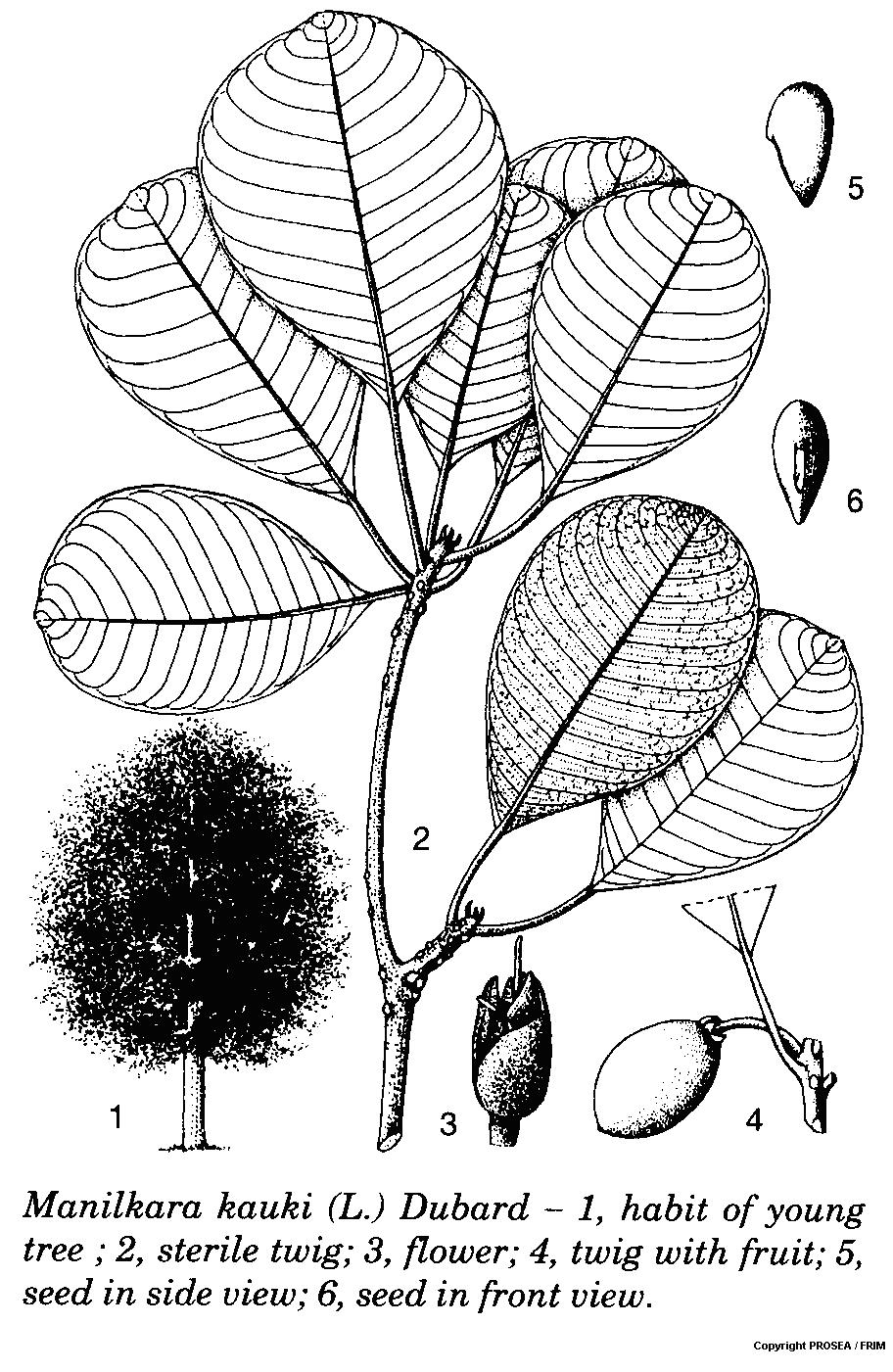Manilkara kauki (L.) Dubard
Family
Sapotaceae
Synonyms
Mimusops kauki L.
Vernacular Names
| Malaysia | Sawah, sawai, sawau (Peninsular). |
| Indonesia | Sawo kecik (Java, Bali), kayu sawo (Java), sabo (Bali). |
| Thailand | Lamut-thai, lamut-sida (Central). |
| Papua New Guinea | Sner. |
| Vietnam | Vi[ees]t. |
Geographical Distributions
Manilkara kauki is distributed in Burma, Indo-China, Thailand, Peninsular Malaysia, throughout Indonesia (except Kalimantan), Papua New Guinea and north-eastern Australia.
Description
Manilkara kauki is a medium-sized tree that can reach up to 25 m tall, often with gnarled and low-branched bole, sometimes columnar and measuring up to 100 cm in diametre.
The leaves are clustered at the apex of twigs. They are silky white velvety beneath.
The flower buds are ovoid. The pedicels are not thickened, but curved and long. The sepal is up to 7 mm long and with distinct hairless ovary at the disc.
The fruit is ovoid or obovoid and measuring up to 3.7 cm long.
Ecology / Cultivation
Manilkara kauki usually grows in coastal regions with a comparatively dry climate, generally below 500 m altitude.
Line Drawing / Photograph
References
- Plant Resources of South-East Asia No. 5(1): Timber trees: Major commercial timbers.


